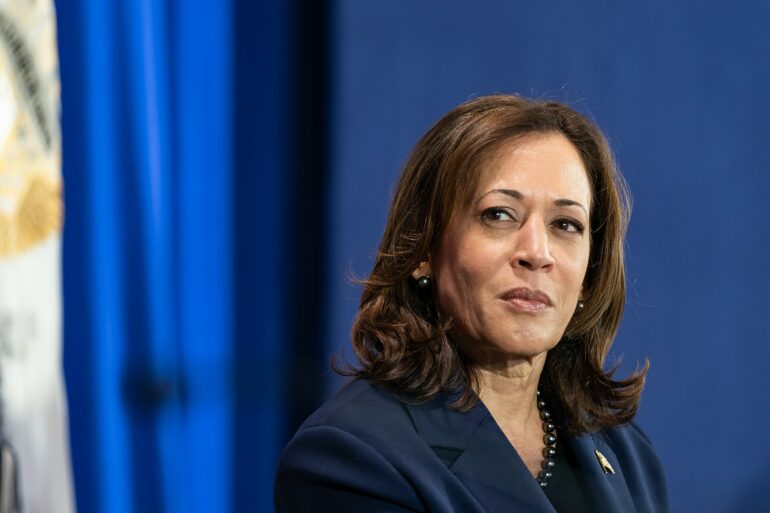Former Vice President Kamala Harris reportedly resisted a direct request from the Biden campaign to reassure anxious Democrats on Capitol Hill after President Biden’s damaging June 2024 debate performance — concerned that any move she made might look like an attempt to seize the nomination for herself.
The episode is detailed in ABC News correspondent Jonathan Karl’s forthcoming book, Retribution: Donald Trump and the Campaign That Changed America, with an excerpt released Friday by The Dispatch.
Karl describes a Democratic Party thrown into disarray as questions mounted about whether Biden should remain the nominee against President Donald Trump. Veteran party figures, sensing a rapidly shifting political landscape, began mobilizing behind the scenes.
Donna Brazile and Bakari Sellers “began calling state party leaders and essentially every influential Black leader in the party” as the crisis deepened, Karl reports. Their message to delegates was unmistakable: “You need to stand with Biden as long as he’s in the race. But if he drops out, we all need to unite behind Kamala Harris.” Karl notes that “the effort to secure the nomination for Harris had already begun.”
But Harris herself avoided participating in that push. As Karl writes, “she had not so much as hinted — publicly or privately — that Biden should drop out of the race as calls for him to do so grew louder.” That decision, Karl argues, reflected both “loyalty to the president” and strategic caution.
Her advisers recognized the precarious politics of the moment. Should Biden exit the race, his blessing would be crucial to whether Harris would be, in Karl’s words, “coronated” as the nominee — or forced into a divisive convention fight that could reveal deep fractures in the party. With that in mind, she kept her “head down” through “those fateful three weeks in July.”
Karl underscores that Harris neither joined those questioning Biden’s fitness nor vigorously defended him. Instead, she stepped back from the internal scramble. According to the book, campaign leadership asked her to call congressional Democrats to help calm nerves, but she refused.
“Harris believed such calls could be misinterpreted as the early stages of an effort to secure the nomination for herself,” Karl writes. Two Harris aides told him that she worried those conversations “could later disclose that they had spoken to her and misrepresent the purpose of the call.”
Her caution reflected both political instinct and an awareness of Biden’s declining position. She understood that a single misstep might give ammunition to those who believed she was poised to replace him — and could further undermine a campaign already struggling badly.
The portrait that emerges is of a party beset by doubt, with its top officials maneuvering quietly while publicly insisting on unity. Meanwhile, Harris stayed on the sidelines, relying on Biden’s fate to determine her own — but avoiding risks that might alienate either his supporters or those demanding his departure.
What remains clear from Karl’s account is that the Democratic Party’s leadership vacuum during those critical weeks left few confident voices defending the president — and even fewer willing to take responsibility for what came next.
[READ MORE: White House Timeline Updated to Include Clinton Scandal and Hunter Biden Troubles]



